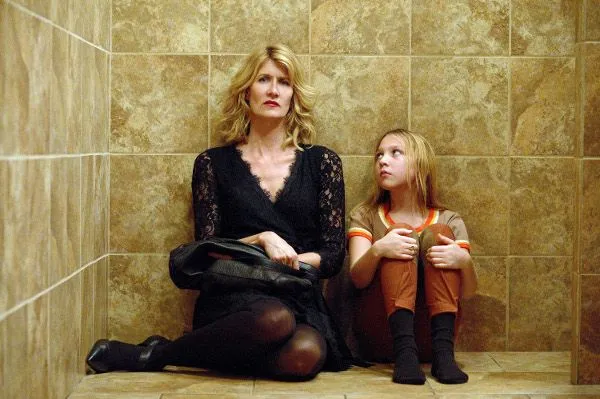Eye For Film >> Movies >> The Tale (2018) Film Review
The Tale
Reviewed by: Amber Wilkinson

Sundance was notable for its strong and diverse female leads this year, but of all the films in competition, The Tale most epitomised a year when Hollywood has been dominated by the Harvey Weinstein scandal, which fed into the #MeToo movement. Although the work on Jennifer Fox's film began long before the dam of secrecy broke, it could not have arrived at a more timely moment.
Fox is known for her documentary work, including Sundance Grand Jury Prize winner Beirut: The Last Home Movie, but this drama is less of a departure than might first appear, as it has a strong documentary underpinning.

It is an intensely personal exploration of childhood grooming and sexual abuse, but it also offers plenty to think about more generally in terms of societal expectations and assumptions and human's seemingly uncanny ability to turn a blind eye for reasons as diverse as self-preservation and disbelief. A powerful interrogation of memory and the way that it can protect an abuser, Fox leads us into the maze of her own experience, showing how its walls shift even as she tries to work through her feelings both at the time of the assault and in reflection since.
The film is, necessarily, shocking but Fox handles what must have been difficult emotional material for her in a cool and responsible way that makes the message she delivers all the more devastating. Fox, played in adulthood by Laura Dern, was in her late 40s when her mum (Ellen Burstyn) sent her an essay she had written as a 13-year-old. Entitled The Tale, the story has the gushing glow of a teenage romance, even as she details the way she was groomed, and eventually raped, by her running coach Bill (Jason Ritter), who was aided and abetted by her horse-riding instructor Mrs G (Elizabeth Debicki). It is this disconnect - between the memory and the rediscovery - that the film will go on to interrogate as adult Jennifer turns gumshoe to track down the truth of her own past.
Fox wants us to feel the weight of the discrepancy between truth and memory and recreates it by first drawing us into her introduction to the pair of abusers. We watch as 13-year-old Jenny (Jessica Sarah Flaum, who like so many adolescents on film is on the cusp of womanhood) goes to Mrs G's house for the first time. Weaving her flashbacks in with her experience as a fortysomething allows us to feel Fox's revelations as she herself experienced them. So, we see Dern's Jennifer telling her mum about the visit while looking through a photo album, only to be shocked when she is told the 'Jenny' she is imagining is, in fact, her at 15. Now, we take a much more treacherous walk down memory lane as we see the young, almost pre-pubescent Jenny (now played by Isabelle Nélisse) go through the introduction again.
This gets at the heart of why this film is so important. It has long been a personal bugbear of mine that it is common practice for teenagers to be played by older actors in order to mitigate the potential ickyness of relationships with much older people - films such as Tadpole, Lolita and even Call Me By Your Name, take a bow. Fox forces us to confront that and, in doing so, opens up a world of questions that extend beyond the frames of her film.
Within the narrative itself, she continues to push at the fractured nature of her memory, shifting the gaze so that the action becomes more and more sinister by degrees, asking us to take a look from the child's perspective, just as Fox is now reframing her experience from an adult viewpoint. The director isn't scared of taking the bull by the horns and even permits her adult characters to have conversations with people from the past, continually pushing at the perspective and calling on us to consider the intellectual as well as emotional arguments.
The acting is spot-on all round, particularly from Dern, who is so committed it almost burns into you and Ritter in a tough role, chimera-like - half-charmer when you look at him through the eyes of a 13-year-old, all predator observed in the rear-view mirror. Fox also handles the film's toughest scenes well and in ways that fully protected her young star. That the film's 'reckoning' with the abuser is a metaphorical punch with a ricochet only goes to further illustrate the complex nature of living with trauma as a potentially permanent companion. This is not an easy watch but it is to be recommended. It's to be hoped that the decision to sell it to HBO, which will bring it to small rather than large screens, will help it reach a wide audience and provoke continued debate. And what you discover about the slippery nature of memory is something you won't forget.
Reviewed on: 09 Apr 2018















